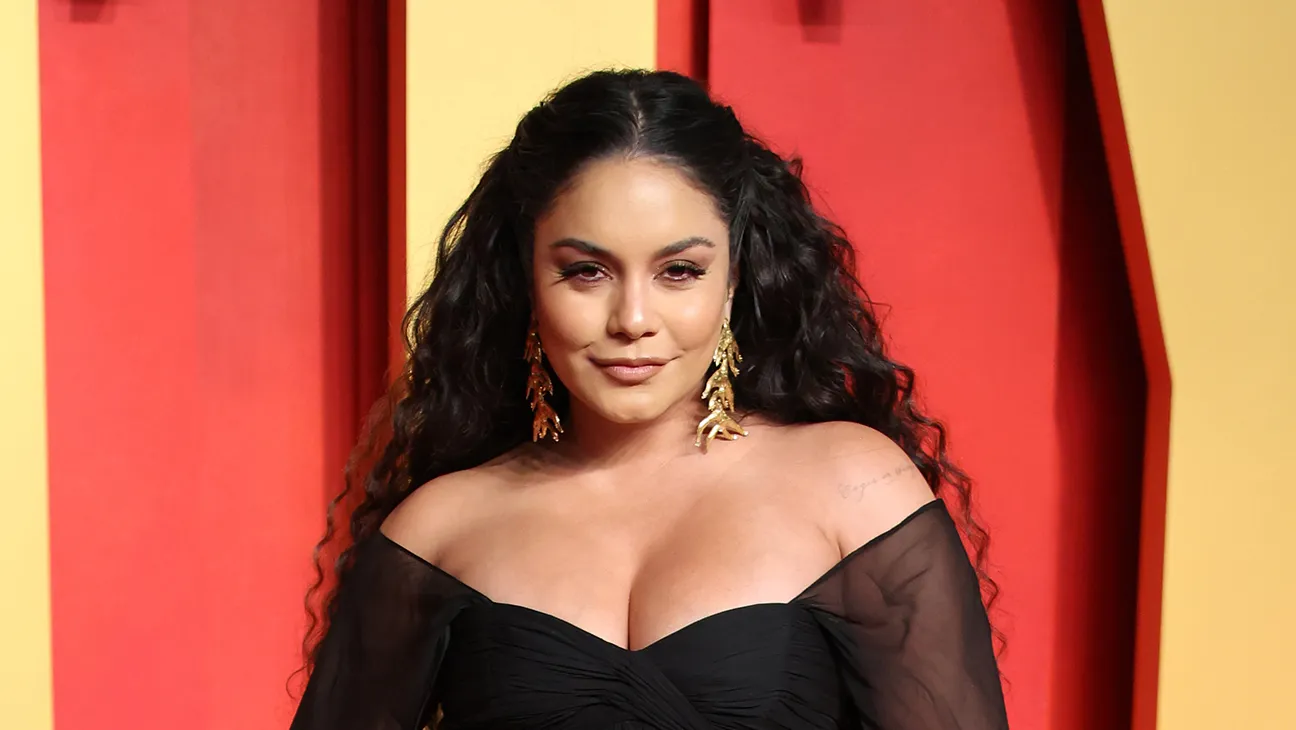In 2014 an event that became known as “The Fappening” — a widespread leak of private, often nude photographs of celebrities — shocked the internet and reignited urgent conversations about privacy, consent, and the security of personal data. While headlines focused on a handful of the most high-profile victims, the scandal’s reverberations swept across Hollywood and pop culture, affecting the careers, mental health, and public narratives of many stars and young performers who found themselves suddenly exposed in a way they never consented to. Vanessa Hudgens — who rose to fame as the charismatic star of the “High School Musical” franchise and built a career as an actress and singer — exemplifies the kind of entertainer whose public life made her especially sensitive to the fallout from such privacy violations, even if she was not the most prominent name in early news cycles.
The breach and its cultural shockwave
The mechanics of the incident were simple and terrifying: private images stored in cloud services were accessed through a combination of weak passwords, targeted phishing, and in some cases exploitation of security vulnerabilities. Once obtained, the images were distributed across image boards and social media, instantly becoming the subject of voyeuristic commentary. To the public, these photos were titillating content; to the victims they represented a gross invasion of intimacy and agency.
For younger stars like Hudgens — whose fanbase included millions of teenagers and whose public persona had been carefully cultivated as wholesome, talented, and relatable — the leak crystallized fears about how quickly private moments could be weaponized and how hard it would be to control a narrative once something digital entered the wild. Even without being singled out in the first headlines, performers in Hudgens’s position had to reckon with potential secondary effects: gossip, unwanted attention, and the risk that their professional opportunities could be reframed through the lens of a privacy breach.
Career and image management in the aftermath
Public figures respond to crises in varied ways: some issued public statements calling for privacy and respect; others turned to legal action; a number chose silence. For a performer like Vanessa Hudgens, whose transition from child star to adult actor involved carefully curated choices in roles and public appearances, the risk was two-fold. First, there was the immediate emotional toll and the need to protect one’s personal life. Second, there was the calculation — rightly or wrongly enforced by industry gatekeepers and public opinion — about how the incident might influence casting directors, brand partners, and fans.
The best responses combined dignity, clarity, and advocacy. By refusing to allow leaked content to define them, many celebrities redirected attention toward their work and toward broader conversations about consent. Over time, the industry slowly started to appreciate that a privacy breach says far more about the perpetrators and platform failures than about the victims.
Legal and technological pushback
The Fappening forced legal systems and tech platforms to confront uncomfortable questions. Was the leak the result of individual negligence, systemic security shortcomings, or criminal intrusions? In many cases the answer was all of the above. The scandal prompted civil suits, criminal investigations, and a renewed public demand for stronger cloud security, multifactor authentication, and swift takedown mechanisms.
From a celebrity’s perspective, the legal route is often complicated and slow: tracking down perpetrators who operate across borders, persuading platforms to remove content, and proving damages can take years. Yet even incremental legal victories reinforced the notion that victims had rights and that privacy invasions could — and should — be punished. The episode also nudged technology providers to tighten default settings, offer better account recovery, and promote two-factor authentication.
The mental health toll
Beyond career calculations and legal maneuvers lay a quieter, more painful aftermath: the emotional impact. The shame and violation that accompany the unauthorized exposure of intimate images can be deep and long-lasting. Public figures often face the double bind of needing to be visible for their careers while also protecting their mental health in the glare of public attention.
Celebrities who spoke out did important work by destigmatizing the victim experience and encouraging others to seek support. The conversation around mental health, therapy, and resilience became part of the cultural response — an acknowledgement that privacy violations are a form of harm that warrants care and community support.
Media ethics and public responsibility
The Fappening also served as a blunt lesson in media ethics. Tabloid culture and click-driven websites had to contend with the moral cost of profiting from stolen intimacy. Responsible outlets gradually tightened policies around sharing leaked content, recognizing that circulation furthers harm. Social media platforms faced increasing pressure to act quickly to remove illegally obtained content and to enforce policies that discourage doxxing and harassment.
For fans and consumers, the scandal provoked reflection on complicity: sharing, commenting on, or bookmarking stolen images meant participating in a harm economy. The event nudged a culture that often conflates celebrity with entitlement to personal details toward a more cautious and empathetic posture.
Lessons learned and practical takeaways
In the years since the leak, several practical lessons have been widely adopted by individuals and organizations:
-
Use strong, unique passwords and two-factor authentication for every account, especially email and cloud storage. Simple steps drastically reduce the risk of unauthorized access.
-
Be mindful of metadata and backups. Understand what devices, apps, and cloud services automatically store photos and how to control those settings.
-
Seek legal counsel early if you become a victim. Preserving evidence and working with trusted lawyers and platforms can accelerate takedown and accountability.
-
Engage mental health support and trusted personal networks. Privacy violations are traumatic; emotional care is as important as technical fixes.
-
Resist the urge to consume or share stolen material. Individual choices about sharing determine how quickly harmful content proliferates.
The long view: privacy as a cultural value
More than a decade after those shocking headlines, The Fappening is remembered less for the titillation it generated and more for the cultural reckoning it forced. For stars like Vanessa Hudgens, the episode underscored a fragile truth of modern fame: celebrity amplifies both admiration and vulnerability. Yet it also demonstrated the possibility of a healthier ethos — one where consent, respect, and privacy are taken seriously by fans, platforms, and the law.
Celebrities continue to navigate a world where private lives are at risk of public exposure. But the lessons of the Fappening have been taken to heart in many quarters: technology has improved, legal frameworks have tightened in places, and public discourse around consent and victim-centred responses has matured. These shifts don’t erase the pain of those targeted, but they do create a firmer foundation for protecting privacy going forward.
In the end, the story of Vanessa Hudgens and the broader scandal is not merely about an attack on individuals; it’s about a community — fans, media, platforms, and lawmakers — learning to value dignity over voyeurism. That cultural change is the real legacy worth noting: a reminder that what we choose to protect says a lot about who we are.





